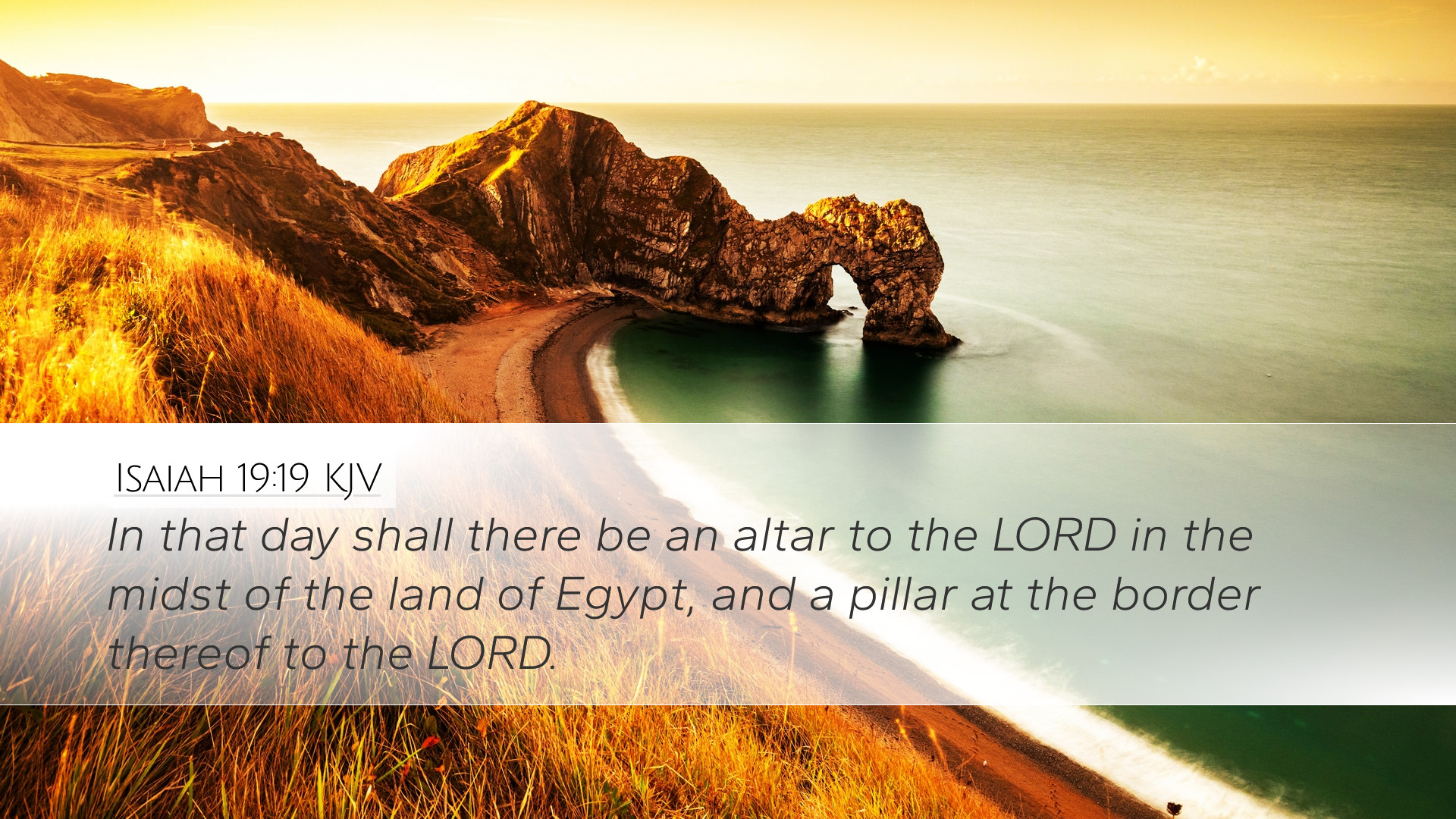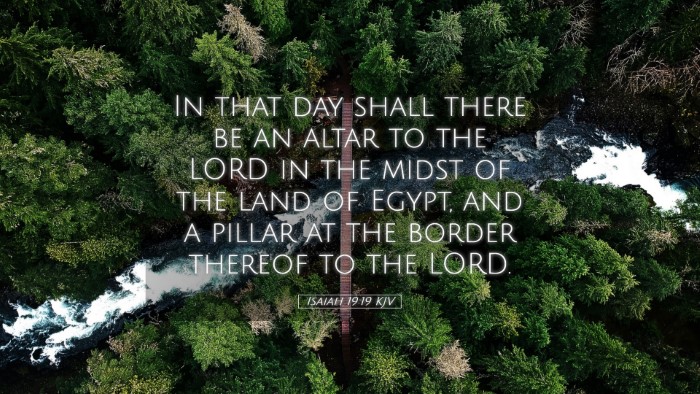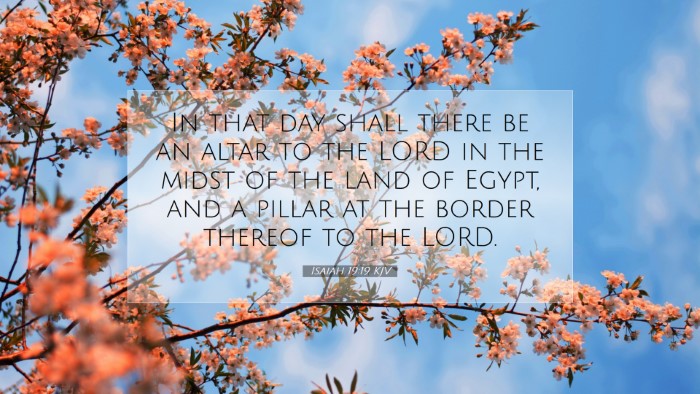Commentary on Isaiah 19:19
Verse Context: Isaiah 19:19 states, "In that day there shall be an altar to the Lord in the midst of the land of Egypt, and a pillar at the border thereof to the Lord." This verse is rich in theological and prophetic implications, making it a significant focal point for biblical scholars and theologians.
General Interpretation
This verse presents a prophetic vision in which Egypt, traditionally viewed as a symbol of oppression and idolatry in the biblical narrative, is portrayed as returning to the worship of the true God. The altar signifies a point of sacrifice and devotion, indicating a turn from polytheistic practices towards monotheism.
Matthew Henry's Commentary
Matthew Henry interprets this verse within the broader scope of God's redemptive plan. He notes that despite Egypt's history of resistance against the God of Israel, a day will come when they will acknowledge His sovereignty.
- Repentance and Worship: Henry emphasizes the importance of the altar, which symbolizes both repentance and renewed worship. He presents the idea that this signifies a corporate return to God.
- The Role of the Pillar: He points out that the pillar at the border represents the acknowledgment of God’s power and presence in the transformation of a nation marked by sin.
Albert Barnes' Notes
Albert Barnes enriches the commentary by breaking down the implications of the location of the altar in Egypt. He explains that the location of the altar, "in the midst of the land," signifies a central role that worship will play in the life of the Egyptian people.
- Symbol of Unity: Barnes posits that this altar is a symbol of unity among a people who have historically been divided by idolatry and disbelief. It suggests a new beginning and solidarity in faith.
- The New Covenant: He suggests that this can be seen as foreshadowing the new covenant in Christ, which transcends national boundaries and includes all peoples in the worship of the one true God.
Adam Clarke's Exegesis
Adam Clarke adds a unique perspective by exploring the implications of this prophecy for the future of the nations surrounding Israel. He asserts that the altar speaks not just to the Egyptians but to all nations who will eventually have a part in worshiping God.
- A Fulfillment in Christ: Clarke indicates that this has been fulfilled in the coming of Christ, who broke down barriers and allowed Gentiles, including Egyptians, to access God.
- Sign of Hope: He views this prophecy as a significant sign of hope that extends beyond immediate circumstances, pointing to the ultimate restoration of all creation under God's sovereign rule.
Theological Implications
This verse and its commentaries reveal several theological insights, particularly regarding God's redemptive work among the nations:
- Inclusivity of Salvation: The concept of an altar in Egypt represents God's inclusive plan for salvation, indicating that His grace extends to all, regardless of previous disobedience.
- Restoration of Relationships: It symbolizes God's desire to restore broken relationships, not just with individuals, but with entire nations.
- Transformative Power of God: The transformation from idolatry to worship underscores the transformative power of God, who can change the hearts of even the most resistant people.
Practical Applications
For pastors and students of the Word, Isaiah 19:19 serves as a profound reminder of God's ongoing work in the world:
- Encouragement in Ministry: Understanding that God is capable of bringing nations to Himself can serve as encouragement for missionary efforts and intercultural engagement.
- Prayers for Nations: This verse invites believers to pray for nations that seem far from God, believing in His ability to bring transformation.
- Personal Reflection: It challenges individuals to reflect on their own lives—where there may be altars of false beliefs and practices that need to be replaced with true worship.
Conclusion
Isaiah 19:19 is a foundational text that invites reflection on the nature of God’s redemptive work in the world. The insights derived from the commentaries of Matthew Henry, Albert Barnes, and Adam Clarke illuminate the promise of restoration and the universal call to worship the Lord. As believers, there is great hope in recognizing that God's willingness to include even the most unlikely subjects into His kingdom illustrates His unfathomable grace and love.


